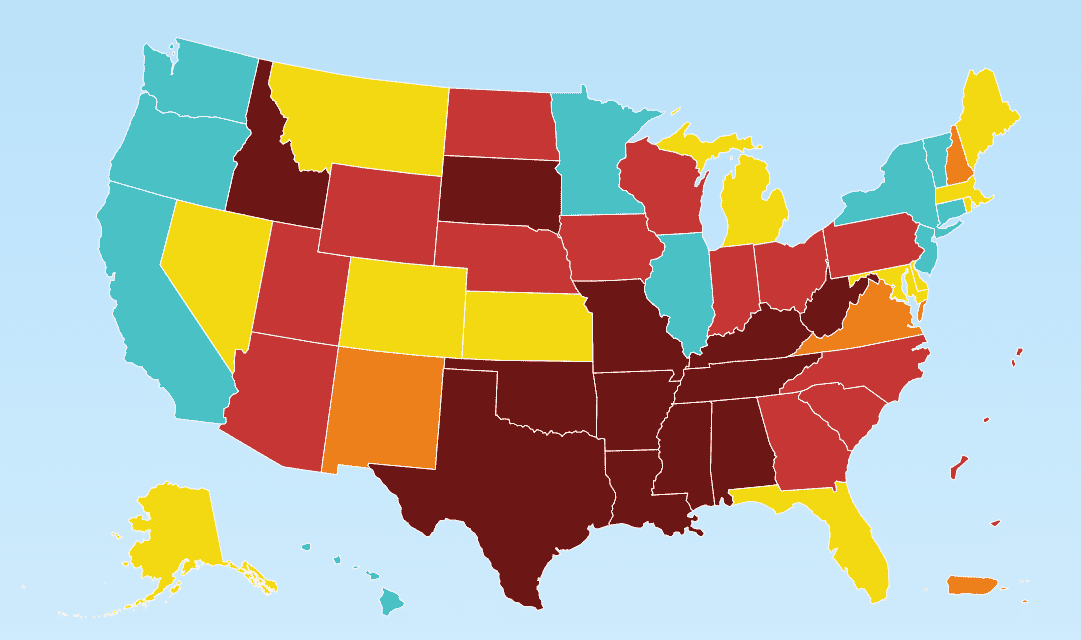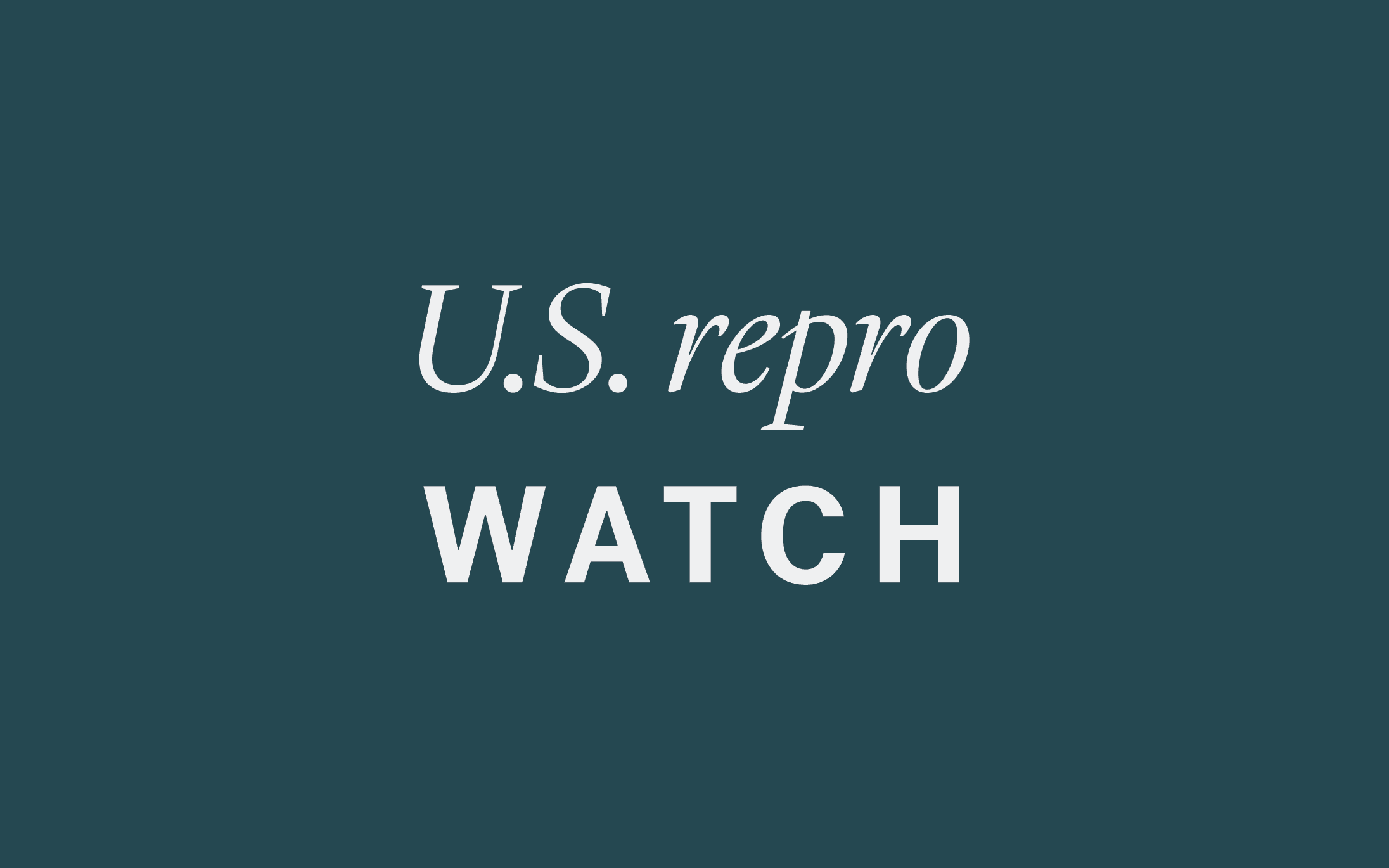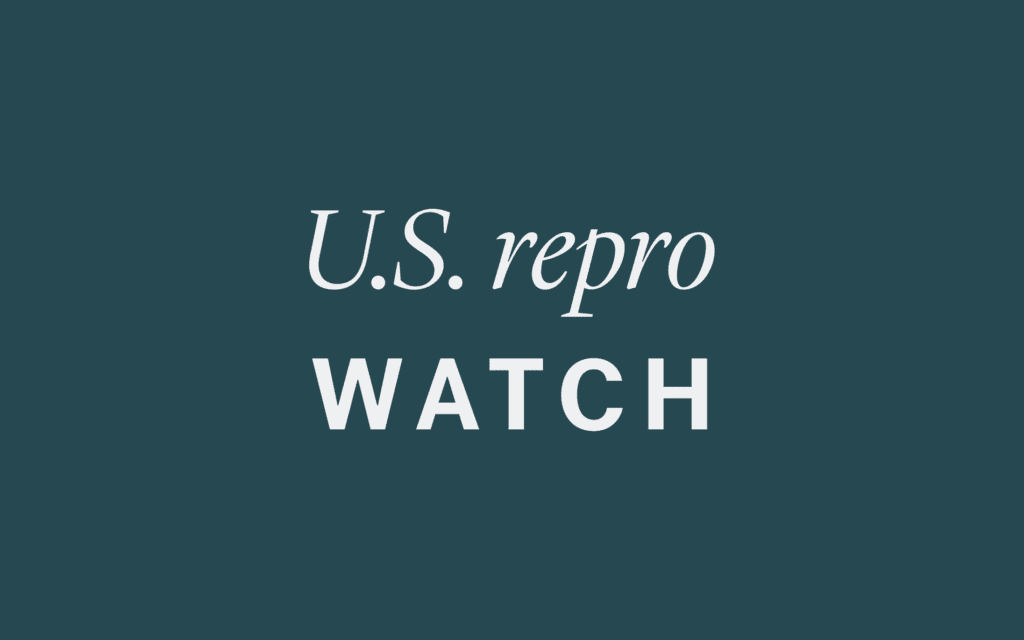U.S. Repro Watch, March 29
This week's top 5 news items on U.S. reproductive rights.
“U.S. Repro Watch” provides periodic updates on news of interest on U.S. reproductive rights. Here are five recent items you won’t want to miss:
1. A new Wyoming law banning all abortion was blocked days after it took effect.
- Teton County District Court Judge Melissa Owens temporarily blocked the law after a hearing on Wednesday, March 22. Abortion providers and advocates had challenged the ban—which attempts to redefine abortion by claiming it is not health care—after it took effect March 19.
- During the hearing, Judge Owens said that “Wyomingites voted into law that they have a fundamental right to make their own health care decisions” and that the lawmakers “cannot legislate away a constitutional right.”
- Plaintiffs also challenged a law banning medication abortion that is due to take effect in July, but Judge Owens has yet to weigh in on that ban.
After Roe Fell: Abortion Laws by State
Explore this interactive map to learn more about each state’s abortion laws and policies, updated in real time.
2. States continue to take action to both restrict and protect abortion.
- Kansas lawmakers passed a so-called “born alive” bill, similar to a deceptive measure rejected by Montana voters last year.
- In Ohio, an anti-abortion group filed a lawsuit seeking to reverse approval for a proposed constitutional amendment that would protect abortion access.
- Hawaii Gov. Josh Green signed legislation allowing physician assistants to provide abortion care. Green also repealed a requirement that abortions be performed at a hospital or clinic, ensuring access to medication abortion via telemedicine.
- Wisconsin Gov. Tony Evers and legislators announced a bill that would repeal the state’s criminal abortion ban and restore abortion access.
- Twenty-two lieutenant governors are forming a coalition to protect abortion access in their states. The Reproductive Freedom Coalition, led by Connecticut Lt. Gov. Susan Bysiewicz, aims to share model legislation, maximize the availability of federal funds for reproductive healthcare, and back manufacturers of medication abortion.
3. The Equal Access to Abortion Coverage in Health Insurance (EACH) Act was introduced in the Senate.
- This federal bill, introduced March 29, would ensure that people who receive health care or insurance through the federal government have coverage for abortion care.
- The EACH Act aims to reduce economic barriers to abortion access by ending the Hyde Amendment and related bans on abortion coverage that push abortion care out of reach for many people enrolled in federal health insurance programs, such as Medicaid and TRICARE, or who receive health care through a government provider, such as the Indian Health Service.
4. The Kansas Supreme Court signaled continued support for state constitutional protections for abortion during two hearings in Center cases.
- The court heard arguments on March 27 over several abortion restrictions, including a ban on the standard abortion procedure used after about 15 weeks of pregnancy and other medically unnecessary regulations.
- Recordings of the hearings are available on YouTube: Hodes & Nauser, et al. v. Kris W. Kobach, et al. and Hodes & Nauser, et al. v. Janet Stanek, et al.
U.S. Repro Watch
Read previous U.S. Repro Watch posts.
5. The Georgia Supreme Court heard arguments over the state’s ban on abortion after about six weeks of pregnancy March 28.
- The Center and partners are arguing that the ban violates the state constitution. In November, a lower court struck down the six-week ban, but the state’s high court allowed the law to go back into effect as the court considers the case.
- A recording of the hearing is available on the Georgia Supreme Court’s website (see “State of Georgia v. SisterSong Women of Color Reproductive Justice Collective et al.”).
Did you know?
So far this year, 16 states have introduced interstate shield bills to protect abortion providers and patients from other states who might try to prosecute them. For example, Minnesota and New Mexico recently advanced such protections, while states like New York and California are considering additional legislation that would protect those providing medication abortion via telemedicine.
Last week, a Colorado Senate Committee heard testimony from abortion advocates, providers, and patients in support of a proposed interstate shield bill, including from Lauren Miller, one of five women who joined the Center’s lawsuit against the state of Texas after being denied abortion care despite facing grave threats to their health and lives.
“There’s a certain terror of being hunted by your own state when all you’re trying to do is access health care,” Miller said in her testimony. “Please do not abandon us to the cruelty imposed by the leadership in our states, who are preventing health care that they do not understand.”



